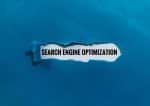In an era where digital transformation is the new normal, businesses across the globe are increasingly integrating technology and innovation into their marketing strategies. This article explores the impact of a boutique marketing agency on the broader industry landscape, highlighting how it disrupted traditional norms and introduced innovative tactics to revolutionize the sector.
Redefining Marketing Strategies
With an increasingly digitalized society, traditional marketing methods have proven insufficient in reaching the contemporary customer. Recognizing this gap, the boutique marketing agency decided to redefine its strategies. It started exploring digital channels, leveraging the power of social media, and using analytical tools for data-driven decisions.
Have you seen this : What Lessons Can Be Learned from the Rapid Growth of a Health Tech Startup?
By employing digital marketing tactics, the agency was able to reach a vast audience. They created targeted campaigns for different demographics, offered personalized services to their clients, and set a new standard in the industry. This approach not only increased their brand visibility but also boosted their customer engagement rates, leading to higher conversions and sales.
The agency’s innovative approach towards using digital channels proved to be a game-changer. They utilized SEO, SEM, SMM, and email marketing to bring an unprecedented transformation in how businesses connect with their target audience.
Additional reading : How Did a Local Apparel Brand Successfully Expand to Global Markets?
Embracing Technological Innovation
The boutique marketing agency understood the potential of technology in shaping business strategies. It realized that staying ahead in the digital age required a business model that embraced technological innovation. They introduced groundbreaking software and tools to automate and streamline their operations, resulting in higher efficiency and productivity.
The agency used technology as a catalyst to transform its services. It introduced AI and machine learning to decode customer preferences and buying behaviors. With these insights, they could design marketing campaigns that resonated with their consumers, thereby enhancing customer satisfaction.
In addition, they integrated augmented reality (AR) and virtual reality (VR) into their marketing tactics. These technologies offered an immersive experience to their customers, encouraging them to engage more with the brand and its products.
Fostering a Culture of Innovation
For the boutique marketing agency, innovation was not just about adopting the latest technology. It was also about nurturing an internal culture that encouraged creativity and out-of-the-box thinking. The company believed that real innovation stemmed from a team that was not afraid to question, explore, and experiment.
To foster this culture, the agency emphasized continuous learning and development. It organized brainstorming sessions, innovation workshops, and hackathons. The idea was to empower the team to come up with innovative solutions that could disrupt the industry.
This approach significantly changed the agency’s working model. It resulted in groundbreaking ideas that were not only beneficial for the agency but also set a precedent for other companies in the industry.
Offering Value-Driven Services
The boutique marketing agency’s main selling point was its value-driven services. They aimed to provide solutions that were not just innovative but also offered substantial value to their clients. By focusing on customer needs and preferences, they were able to deliver services that exceeded client expectations.
They adopted a customer-centric approach, tailoring their services to align with their clients’ business goals. Whether it was designing a brand strategy, creating a social media plan, or executing a digital campaign, everything was designed with the client’s needs in mind.
This customer-centric approach extended to their products as well. They ensured that their products were user-friendly and intuitive, making it easy for customers to interact with them. This commitment to customer satisfaction resulted in an excellent word-of-mouth reputation, enabling them to gain a competitive edge in the industry.
Challenging Traditional Industry Norms
Perhaps the most striking aspect of the boutique marketing agency’s journey is its relentless challenge to traditional industry norms. They dared to question the status quo and take risks, which paid off in the form of industry-wide recognition and success.
They dispelled the notion that big agencies were the only ones capable of delivering high-quality service. They showed that a smaller agency, with a strategic vision and innovative tactics, could achieve significant success.
They also demonstrated that marketing was not just about promoting a product or service; it was about building relationships and connecting with consumers on a deeper level. This shift in perspective changed the way companies approached marketing, leading to a more holistic and customer-centric model.
In a nutshell, the boutique marketing agency has significantly influenced the marketing industry by constantly seeking to innovate and push boundaries. By focusing on digital transformation, fostering a culture of innovation, delivering value-driven services, and challenging traditional norms, they have set new benchmarks for what a marketing agency can achieve.
Leveraging Partnerships for Market Expansion
The boutique marketing agency recognized the need to partner with other industry players to expand their market share. They understood that the power of collaboration could be a key driver in amplifying their reach and impact within the industry. Not just limiting themselves to their niche, the agency sought to establish partnerships with a range of other businesses, both within and outside the marketing sector.
One of their notable strategies was partnering with tech firms to integrate more advanced solutions into their services. They combined their digital marketing expertise with technological advancements to provide a unique blend of products and services. For instance, they collaborated with AI companies to leverage machine learning in understanding customer behavior, thereby enhancing the effectiveness of their content marketing strategies.
They also formed alliances with supply chain companies. This enabled them to understand the end-to-end journey of a product, from production to consumer purchase. In turn, they were able to create more targeted and effective marketing campaigns, addressing each stage in the supply chain.
The agency’s willingness to partner with other companies demonstrated their commitment to adaptability and collaboration. It reflected their belief in the power of diverse ideas and perspectives in driving innovation, contributing to their disruption of traditional industry norms.
The Impact on In-House Marketing Teams
The innovative tactics of the boutique marketing agency did not only disrupt the landscape of marketing agencies but also had a profound impact on in-house marketing teams. By presenting a new business model that leveraged technology and creativity, they changed the game for companies that relied on their in-house marketing teams for their campaigns.
By offering services that surpassed those of traditional in-house marketing teams in terms of innovation and effectiveness, they triggered a shift in how companies perceived marketing. Businesses began to see the value in outsourcing their marketing needs to boutique agencies that had a finger on the pulse of the latest digital trends.
The boutique agency’s success challenged the traditional perception that only in-house teams, thoroughly familiar with the company’s business models and range of products, could deliver effective marketing strategies. It showed that external agencies, with their fresh perspectives and innovative approach, could also drive significant results.
In summary, the boutique agency’s disruption of the marketing industry proved to be a turning point for in-house marketing teams. It challenged them to step up their game and embrace new strategies, thereby leading to a more competitive and innovative marketing sector.
Conclusion: The Future of Marketing
The journey of this boutique marketing agency underlines the power of innovation and technology in disrupting an industry. By redefining the conventional business model, embracing digital transformation, fostering a culture of innovation, and challenging traditional norms, they have set a new trajectory for the future of marketing.
Their success story is a testament to the fact that size does not always equate to impact. They proved that small agencies, with their agility and creativity, can outshine their larger counterparts by offering unique, value-driven services. They demonstrated that the key to market disruption lies not in size, but in the ability to innovate and adapt.
The agency’s innovative approach towards digital marketing and social media usage has not only increased their brand visibility but also instigated a ripple effect across the entire market. Companies are now recognizing the indispensability of digital marketing and technology in their strategies.
In moving forward, it’s clear that the new benchmark for marketing agencies is the degree to which they can integrate innovation and technology into their business models. The future of marketing lies not in the hands of the biggest players, but in those willing to break free from tradition, embrace change, and explore uncharted territories. This boutique marketing agency has indeed set the pace for this exciting future.











